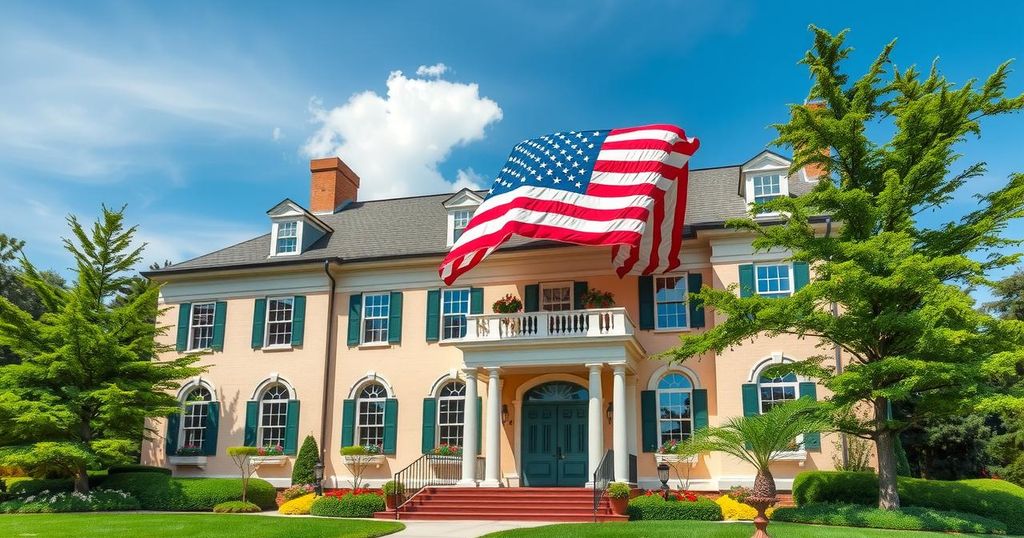US Ambassador’s Residence in Syria Reopens Amid Efforts to Mend Ties with Damascus

The U.S. reopened its ambassador’s residence in Syria, marking a potential thaw in relations. Ambassador Tom Barrack visited Damascus, meeting with President Ahmad al-Sharaa to sign agreements for a major energy project. The reopening comes amidst a broader shift by the Trump administration toward engaging with Syria’s new leadership, despite previous reservations.
On Thursday, the U.S. ambassador’s residence in Damascus was officially reopened, signaling a potential thaw in relations between Washington and the Syrian government. An American flag was raised, marking this noteworthy event attended by Tom Barrack, the U.S. ambassador to Turkey who also serves as the special envoy to Syria. Barrack’s visit is seen as an important step towards mending ties with Syria, which has been strained for years, particularly since the U.S. embassy closed in 2012.
During his visit, Barrack met with Syrian President Ahmad al-Sharaa. At this meeting, they celebrated the signing of a significant agreement that involves a consortium of companies from Qatar, Turkey, and the U.S. This collaboration focuses on a massive 5,000-megawatt energy project, aimed at revitalizing Syria’s damaged electricity infrastructure, which has suffered greatly due to the prolonged civil war.
The consortium will consist of Qatar’s UCC Concession Investments, Power International USA, and Turkey’s Kalyon GES Enerji Yatirimlari, along with Cengiz Enerji. The project plans to develop four combined-cycle gas turbines, which could generate around 4,000 megawatts, coupled with a 1,000-megawatt solar power plant. UCC stated that these initiatives are anticipated to cover over half of Syria’s electricity needs once completed.
Though the U.S. embassy in Damascus remains closed, Barrack’s trip, along with the flag raising, reflects signs of improving relations. This development is particularly remarkable given that Washington had initially been cautious regarding Syria’s new leadership. Ahmad al-Sharaa, who now heads the government, was previously associated with an Islamist insurgent group recognized by the U.S. as a terrorist organization.
In conclusion, the reopening of the U.S. ambassador’s residence in Syria and Tom Barrack’s visit signify a potential shift in U.S.-Syria relations. With substantial agreements signed for energy projects involving international partners, these actions could herald a new chapter in cooperation. Amid ongoing geopolitical complexities, the U.S. administration appears committed to fostering dialogue and paving the way for a brighter future in the region.
Original Source: ca.news.yahoo.com








